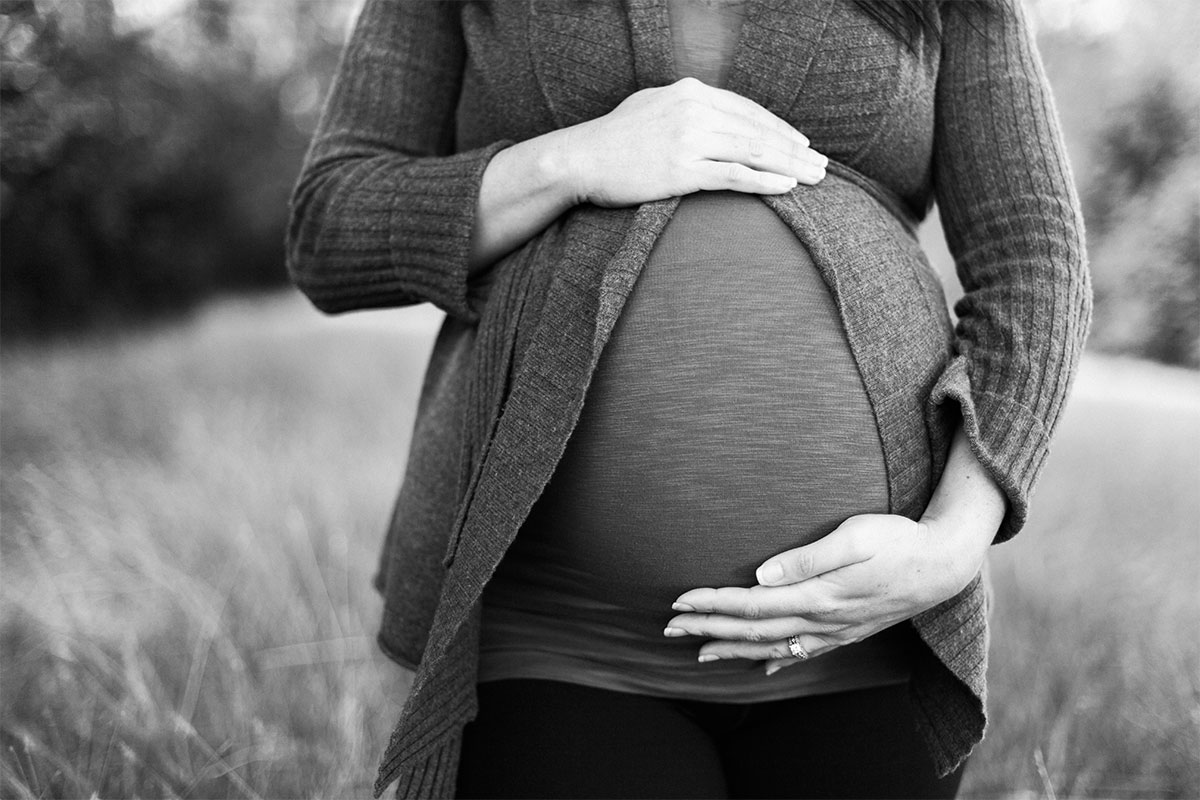
By Amy Banulis, M.D.
The COVID-19 pandemic has put many things on hold, but it can’t slow down a pregnancy. And many pregnant patients are worried. How can you protect yourself and your baby? Will your hospital have adequate personnel and supplies to provide proper care?
While information around the virus and its impact on pregnancy is still limited, early studies out of China are encouraging. There have been no documented cases of a mother passing COVID-19 to her newborn baby during the birth process. Researchers have found no traces of the virus in breast milk, amniotic fluid or the throats of babies of infected mothers. There have been no documented cases of birth defects related to COVID-19.
Are pregnant women at an increased risk?
Complex changes in the immune system during pregnancy do put expectant moms in the high-risk category for infectious diseases. While there is currently no evidence that you are more likely than anyone else to be infected with COVID-19, you may be at higher risk of developing a severe case. This is true for pregnant women in regards to other respiratory illnesses, as well, such as the flu.
However, there are many things you can do to avoid getting sick. Pregnant women should pay particular attention to guidelines from the U.S. Centers for Disease Control and Prevention (CDC) to avoid COVID-19. Wash your hands frequently for a full 20 seconds or use alcohol-based hand sanitizer, avoid touching your face, carry wipes to disinfect surfaces like the buttons of the ATM machine before you touch them, avoid groups, stay at home as much as possible and stay at least 6 feet away from other people when you are outside.
You can also boost your immunity with regular exercise, healthy food, meditation and, in this time of social isolation, funny movies, virtual visits and phone calls with friends and family. Anything that lifts your mood is good for your immune system.
If you suspect you have COVID-19
Don’t go to the hospital emergency room unless you are in extreme distress, because you are likely to expose yourself to other sick people there. Instead, contact your health care provider and talk to him or her about whether you need testing or immediate medical care, and how to care for yourself at home.
Prenatal appointments
While following social distancing guidelines, you may worry about keeping your prenatal appointments with your OB-GYN. It is important to check in regularly with your doctor to protect the health of you and your baby. Some appointments must be done in person, especially late in your pregnancy, but, at Mid-Atlantic Permanente, we have revised our prenatal care schedule to replace some office visits with virtual visits, so you can still receive the care you need without as many trips to the doctor’s office. Talk to your doctor to find out whether you can do some of your visits online, by video or over the phone.
COVID-19 and breastfeeding
Because breastfeeding is so good for your baby, and because there is currently no evidence that this virus (or previous dangerous viruses like SARS and MERS) is passed on in breast milk, the CDC recommends that even infected mothers or mothers who are symptomatic and presumed to have COVID-19 can breastfeed if they wish to do so.
However, the CDC also recommends using extreme caution. Women who have tested positive for COVID-19 or are suspected to have COVID-19 should wash their hands thoroughly before touching their baby and wear a mask while breastfeeding. In some cases, your healthcare team may recommend temporary separation from your baby. In that case, new mothers can carefully express their breast milk, washing their hands before touching the pump and bottles, and have someone who is healthy temporarily feed and care for their baby. This is a choice you should discuss with your doctor.
There is little information available about how susceptible newborns are to this virus, but the good news is that, so far, it does seem that infected children are not getting severely sick.
Will your hospital be overwhelmed by COVID-19 patients?
Most labor and delivery units will not be overwhelmed. The number of patients giving birth won’t change, and our OB-GYN workforce will still be fully dedicated to you and the healthy delivery of your baby. But to protect patients and health care providers, most hospitals now limit the size of your support team, usually to just one person. Plus, everyone coming into the hospital is being carefully screened, and if you have tested positive or show symptoms of COVID-19, you will likely be isolated and asked to wear a mask.
It’s only when a pregnancy becomes complicated that any strain on hospital resources, including protective equipment like masks and gowns, as well as the number of ICU (intensive care unit) beds, may secondarily impact labor and delivery. But hospitals are preparing for this. Some are even sending healthy women and their babies home sooner than usual so they can self-isolate and be better protected from any risk of exposure. This practice also frees up resources for new mothers and babies with more complex medical needs.
Practicing self-care
We usually warn against isolation during pregnancy and when women go home with their newborns. So even if you can’t have your parents, grandparents, siblings or friends around to support you, it’s important to take care of yourself. Getting outside and exercising is critical. And so is virtually connecting with loved ones, as often as you can.
If you feel depressed or overwhelmed, or if you have questions, be sure to reach out to your health care provider. And remember that while it is uncertain how long this pandemic will last, it will not last forever.
Review the latest COVID-19 guidelines from the CDC regarding pregnancy and breastfeeding here.
Amy Banulis, M.D., FACOG, is a board-certified OB-GYN with the Mid-Atlantic Permanente Medical Group and Associate Medical Director for Women’s and Maternal/Child Health. She sees patients at the Kaiser Permanente Falls Church Medical Center.
For more health and family stories, subscribe to our weekly newsletters.




